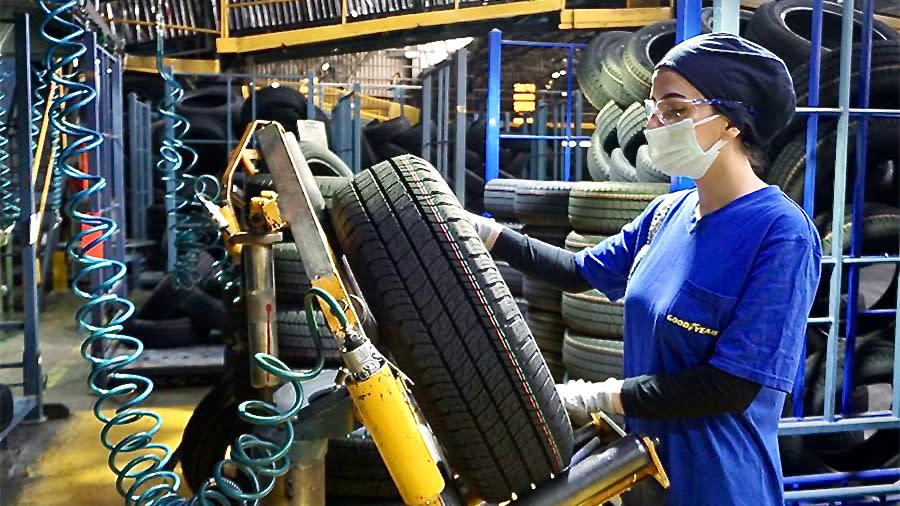
More than 1,300 workers and former employees at a Goodyear Tire & Rubber factory in Mexico will receive $4.2 million in back pay as part of a labor rights mediation plan, U.S. authorities said.
The mediation announced by the Department of Labor on Monday was the result of an investigation under the U.S.-Mexico-Canada-Agreement’s (USMCA) rapid response labor mechanism of the Goodyear Tire facility in the central Mexican city of San Luis Potosi. The USMCA is a trade pact signed by the three countries in 2020.
As part of the plan, the U.S. and Mexican governments negotiated to help workers at the factory who were receiving lower wages and benefits than they were legally owed.
Goodyear has also taken several actions to address denials of basic labor rights, such as a failure by the company to apply a sectorwide worker’s agreements and to allow workers to elect new union representation, officials said.
“I first learned about the case in 2019 when U.S. Rep. Rosa DeLauro [D-Conn.] called attention to the challenges workers faced trying to organize at the facility,” Thea Lee, U.S. deputy undersecretary for international labor affairs, said in a news release. “We look forward to seeing the union-management relationship mature and deepen at Goodyear San Luis Potosi — and throughout Mexico’s rubber industry as the sector-wide agreement is implemented throughout the country.”
In May 2023, the Office of the United States Trade Representative (USTR) asked the Mexican government to investigate claims that labor rights were being denied at the Goodyear plant.
The USTR petition alleged that Goodyear was obstructing workers’ freedom of association and right to collective bargaining at the plant by not recognizing workers’ vote to form an independent union in April 2023.
The $550 million Goodyear factory in San Luis Potosi opened in 2017 and produces about 10 million tires a year for customers across North America. The factory employs 1,150 union-eligible workers.
Since the facility’s opening, the union representing workers there had been affiliated with the Confederation of Mexican Workers (CTM), one of Mexico’s largest labor organizations.
CTM has been accused by labor critics of keeping worker wages low for decades across various sectors in Mexico, according to The Associated Press. The union reportedly signed a collective bargaining agreement with Goodyear for worker salaries of $22 a day in San Luis Potosi.
Goodyear allegedly fired 50 employees at the plant in 2019 who had sought to go on strike, according to U.S. officials.
In 2019, several officials, including U.S. Sen. Sherrod Brown, D-Ohio, sent a letter to Goodyear urging them to improve pay and working conditions at the plant and reinstate the workers who had been fired.
“I urge Goodyear to take immediate, concrete steps to improve the pay and working conditions of its employees at the San Luis Potosi plant,” Brown wrote in the letter. “American workers should not have to compete against overseas workers who make $2 an hour and are denied their basic rights to organize and collectively bargain.”
Akron, Ohio-based Goodyear is one of the world’s largest tire companies. It has 57 manufacturing facilities in 23 countries and employs about 74,000 people worldwide.
FBI alleges Mexican cartel, Canadian truckers part of drug ring
4 things to know about the ‘Take Our Border Back’ convoy
Mexico’s truckers plan nationwide strike against cargo theft
The post Goodyear Tire plant ordered to pay $4M in back pay to Mexican workers appeared first on FreightWaves.